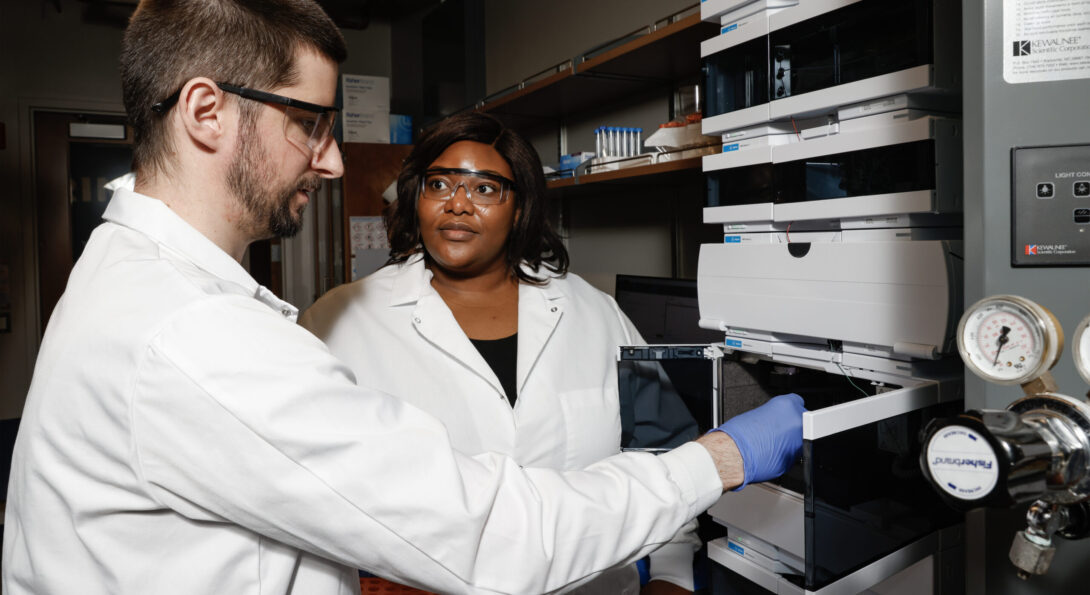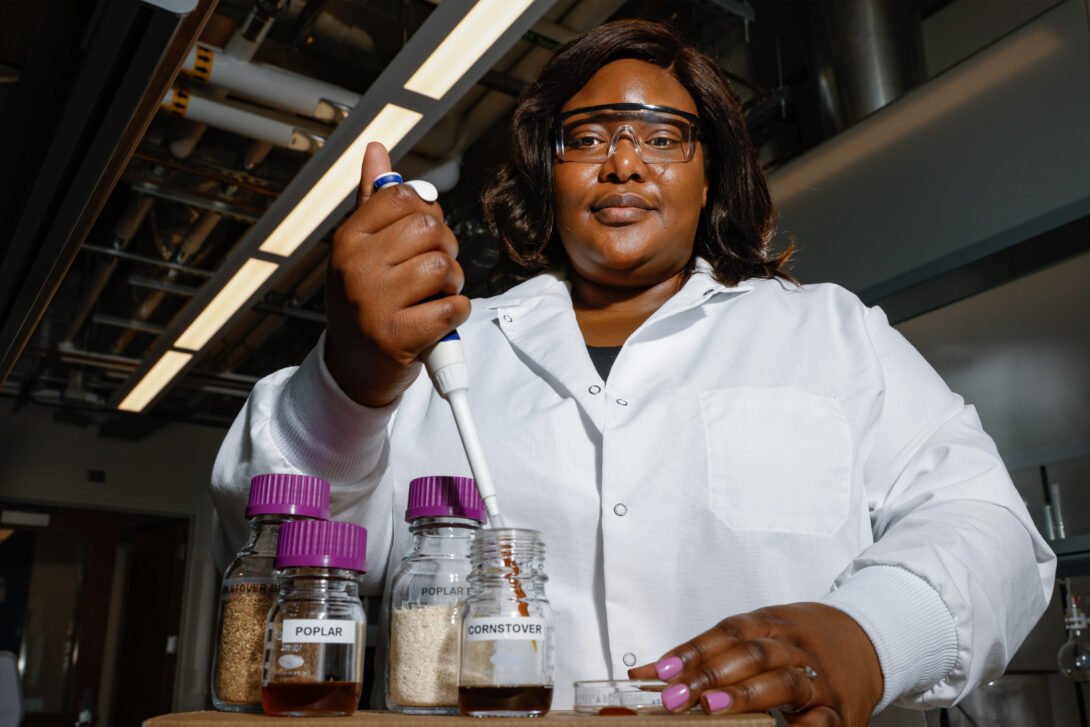Achinivu works to expand biotechnology at UIC through DOE grant

block

The field of biotechnology is growing in popularity and Chemical Engineering Department Assistant Professor Ezinne Achinivu hopes to bring more of this approach to the University of Illinois Chicago to open doors for the university and its research efforts.
“Right now, biotechnology—the use of biology to develop new processes, products, and methods—is an emerging approach to solving a lot of our problems sustainably,” Achinivu said.
A recent grant from the U.S. Department of Energy’s Bioenergy Technology Office Agile Biofoundry (ABF) will provide Achinivu’s team with early-stage funding to develop and build biotech capabilities to establish metabolic engineering and computational biology at the university and expose students to biotechnology.
The ABF actively collaborates with industry and academic groups to accelerate bioproduct research and development and to promote the growth of the U.S. bioeconomy.
Achinivu’s Molecular Design for Sustainable Engineering (MODSE) Laboratory generally focuses on converting waste into bioproducts. Through this study, Achinivu hopes to harness the power of evolved microbial communities to integrate biomass deconstruction with anaerobic digestion to break down abundant and renewable biomass from plant materials such as wood chips, grasses, and food residue to create bioproducts of commercial value.
Anaerobic digestion technology is an important tool in the conversion of waste biomass to renewable fuels, products, and power, and is a promising strategy for resolving the global waste management problem.
Although this process is very similar to composting, Achinivu and her team are controlling the process instead of letting the natural composting process proceed. She is taking that natural process and using the power of microbial communities and not just one microbe as most research has previously done. The goal of the study is to achieve increased deconstruction and bioconversion yields across multiple biomass sources.
“We look forward to establishing this area within UIC,” Achinivu said.
“Previously, we primarily have had access to the chemical methods and approaches, but we have not fully explored the biological approaches. Chemical methods are very effective; however, biological methods are especially beneficial because they lend specificity to the process of breaking down biomass and producing bioproducts.”
As chemicals can break down all the bonds in a material, a microbe can be engineered to break down a specific bond. Microbes are slow, living organisms, which means it takes longer for them to break down materials.
“We hope to combine the biological method with the chemical method to develop a system that is tolerant to harsh conditions and not resistant to specific chemicals and can host the microbes so that they can still function in the presence of the chemicals and if we combine both methods, we’ll be able to have the benefit of both,” Achinivu said.
Achinivu will develop microbes using directed evolution. This process essentially forces development to happen.
Following this study, Achinivu will apply for a larger funding opportunity to work with local Illinois schools, do sustainability assessments and analysis, and further research into microbial evolution. She hopes to process the school’s food waste and break it down. Schools typically generate a large amount of and different types of organic waste including food scraps and paper products.